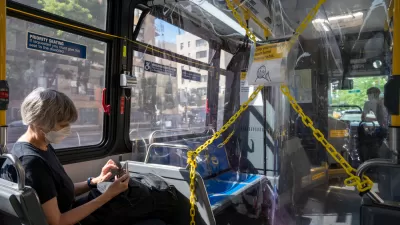The Staten Island Partnership for Transit and Resiliency Improvements (SIPTRI) would be tasked with improving the competitiveness of the borough as it grows to 500,000 residents and beyond.

Cesar Claro and Steven Grillo of the Staten Island Economic Development Corp. write to recommend the creation of the State Island's first planning think tank, a non-profit called the Staten Island Partnership for Transit and Resiliency Improvements (SIPTRI).
Claro and Grillo recommend the non-profit think tank after traveling with the Staten Island Economic Development Corp. to Seattle and Portland and finding inspiration from planners and advocates there.
While Staten Island is not unlike these two cities in terms of area and population, its population growth rate since 2010 has been slower, and it has struggled to attract major corporations and expand its university presence. The reasons include inefficient transit, long commutes, a lack of regional connectivity, a high cost of doing business and insufficient access to commercial hubs.
Claro and Grillo suggest that Staten Island is capable of the same kind of mobility successes as Seattle and Portland—but it needs a strong advocate.
Our development corporation will create a nonprofit to raise funding for and invest in transportation and recruit local board members who will help hire a transportation czar, prioritize projects and determine how to secure and allocate funds raised through new measures. Projects to be evaluated include light rail on the West Shore, bus rapid transit on the North Shore, a gondola to Bayonne and fast ferry service.
FULL STORY: Why can't Staten Island do what Seattle and Portland did?

Planetizen Federal Action Tracker
A weekly monitor of how Trump’s orders and actions are impacting planners and planning in America.

Maui's Vacation Rental Debate Turns Ugly
Verbal attacks, misinformation campaigns and fistfights plague a high-stakes debate to convert thousands of vacation rentals into long-term housing.

San Francisco Suspends Traffic Calming Amidst Record Deaths
Citing “a challenging fiscal landscape,” the city will cease the program on the heels of 42 traffic deaths, including 24 pedestrians.

Defunct Pittsburgh Power Plant to Become Residential Tower
A decommissioned steam heat plant will be redeveloped into almost 100 affordable housing units.

Trump Prompts Restructuring of Transportation Research Board in “Unprecedented Overreach”
The TRB has eliminated more than half of its committees including those focused on climate, equity, and cities.

Amtrak Rolls Out New Orleans to Alabama “Mardi Gras” Train
The new service will operate morning and evening departures between Mobile and New Orleans.
Urban Design for Planners 1: Software Tools
This six-course series explores essential urban design concepts using open source software and equips planners with the tools they need to participate fully in the urban design process.
Planning for Universal Design
Learn the tools for implementing Universal Design in planning regulations.
Heyer Gruel & Associates PA
JM Goldson LLC
Custer County Colorado
City of Camden Redevelopment Agency
City of Astoria
Transportation Research & Education Center (TREC) at Portland State University
Jefferson Parish Government
Camden Redevelopment Agency
City of Claremont





























